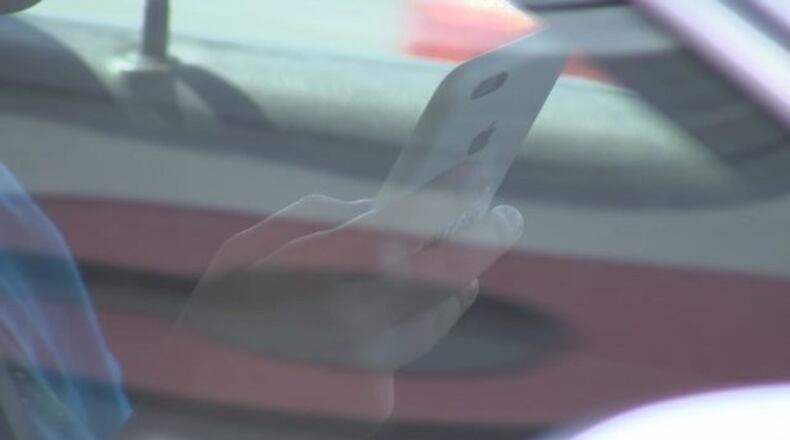As The Atlanta Journal-Constitution reported Thursday, the debate over a bill that would crack down on distracted driving is setting off one of the most emotional debates at the Gold Dome this year.
It’s a debate that at times seems to pit the fundamental values of life and liberty against each other. With traffic fatalities rising in part because our eyes are glued to our phones instead of the road, should lawmakers make it illegal to hold your cell phone while driving, or would that constitute unnecessary government overreach?
At issue is House Bill 673, which would require drivers to use hands-free technology when using cell phones and other electronic devices while driving. But “hands free” isn’t as clear cut as it sounds. Here’s a look at what would and would not be allowed.
Prohibited
*Holding or supporting, with any part of the body, a wireless telecommunications device or stand-alone electronic device (for example, an iPod).
*Writing, sending or reading any text-based communication, including a text message, instant message, e-mail or internet data while holding your device.
*Reaching for a device if it means you’re no longer in a seated, driving position or properly restrained by a seat belt.
*Watching a video or movie other than watching data related to the navigation of your vehicle (i.e., your mapping app or GPS screen).
*Recording a video.
Allowed
*Speaking or texting while using hands-free technology.
*Using a GPS system or mapping app.
*Using radios, CB radios, CB radio hybrids, commercial two-way radios, subscription-based emergency communication devices, prescribed medical devices, amateur or ham radios and “in-vehicle security, navigation or remote diagnostics” systems.
*There are circumstances where you can handle an electronic device while driving: Reporting a traffic accident, medical emergency, fire, a crime or delinquent act or a hazardous road condition. You can also use your hands if you’re lawfully parked (not at a stoplight – “lawfully” means off or beside the road in an area open to parking).
*Some people are exempt from the hands-free requirement if they’re performing official duties: police, firefighters, emergency medical personnel, ambulance drivers, other first responders and utility employees or contractors responding to a utility emergency.
You can learn more about HB 673 and the debate it has sparked at myajc.com.
About the Author





